Julie Musil's Blog, page 4
February 18, 2015
Flight to Success: What's Your Own Inciting Incident?
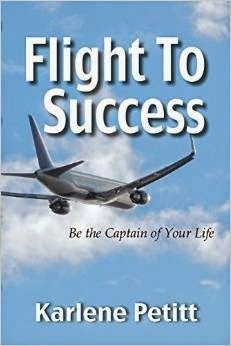
Friends, today Karlene Petitt is here to share with us about her own personal journey to become a pilot and author. Her book Flight to Success: Be the Captain of Your Own Life is available now. Enjoy the inspiration!
Flight To Success is a journey we all experience. My journey began when I was nine-years-old and a friend said, “You can’t be a pilot. Girls can’t do that.” I stood with hands on hips and said, “Yes I can!” We argued. Game over, and I kicked my friends out of the house. But the challenge was on. I did not understand until years later, but that moment was my inciting incident. I faced the choice to take that challenge, or not. Fear, logistics, and many additional reasons as to why becoming a pilot was impossible sprouted their ugly heads.
Just like the protagonists in our stories we are all faced with those moments of decision—our call to adventure. These choices may present themselves in a challenge, health issues, a moment of inspiration, or perhaps dissatisfaction with the way life is and we want more. Something will happen in your life and you will be faced with the decision to accept the calling, or not.
Then obstacles and challenges arrive—the time when the hero of any story must confirm their commitment. When the protagonists’ journey becomes difficult, do they quit or dig deep and press on? We all know that the greatest struggles, answered with dedication and perseverance, followed by success make the best stories. Isn’t life the same?
You are writing your story—it’s called life and you are the hero. There will be challenges along the way—will you quit? You might get on the wrong plane—will you enjoy the journey and reschedule another destination at a later date, or complain? You might face a thunderstorm that will delay your trip—will you wait it out or give up? And when you achieve success and write that first book, will you quit or write another?
Julie was gracious enough to enable me to share my most recent work with you—Flight To Success, Be the Captain of Your Life. What is this book about? It’s about taking control of your life and mastering steps to reach success. One reader said…
“This is not book about flying; it is a story about life, and living life, and making the right (and difficult) choices. Flight to Success is entertaining, engaging, thought provoking, and not an easy book to put down. The highest compliment I can make is that I will buy another copy to give to my wife, mostly because I don’t want to share my only copy.” Jeffrey L. Roehr
That little girl became an airline pilot. I’m also a mother, grandmother, wife, have earned two masters degrees, published two novels, and currently pursuing a PhD. Have there been struggles along the way? Of course—experience teenage daughters and you can check off the challenge box. I have also started over eight times; seven of my previous airlines are now out of business. The most recent challenge was bringing my passion to market while attending a doctorate program, and working. This book was essential.
Flight To Success, Be the Captain of Your Life came about because I wanted something age appropriate for those students I speak to about fulfilling their dreams. (My aviation thrillers are of adult content.) I want to help and support our future generations to get on the right flight path for their lives. Thus, stories of my life and others’ lives found their way into the pages with real, inspiring, and motivational lessons. Included are secrets to success such as flight planning your life, listening and learning, and how to deal with fear, plus so much more. There are lessons that can help anyone from young to old achieve their dreams.
Success is about how we live today, not what we did yesterday. It’s about living in the moment with purpose, integrity, and commitment. It’s about the journey, and extending a helping hand to lift another up; sharing lessons to help them reach their dreams. Success is about the Flight:
Fulfillment * Love * Integrity * Gratitude * Happiness * Truth.
Dream. Believe. Achieve. Anything is possible.
Enjoy the Journey!
XO Karlene
Karlene Petitt is currently an A330 international airline pilot living in Seattle. She is type-rated on the B747-400, B747-200, B767, B757, B737, B727 and A330 aircraft. She holds MBA and MHS degrees, and is currently working on her PhD at Embry-Riddle Aeronautical University in Aviation, with a focus on safety. She has flown for Coastal Airways, Evergreen, Braniff, Guyana and Tower Air. She has instructed at America West Airlines, Premair, Guyana, and has also flown and instructed for a northwest airline on the 747-400 and 747-200. She has spent 21 years training pilots, and has been instrumental in training program development at multiple airlines. She is a mother of three grown daughters and grandmother of seven.
Aviation thrillers: Flight For Control and Flight For Safety .
Blog*Facebook*Twitter
Thanks so much, Karlene! You're truly an inspiration.
Friends, do you remember your own inciting incident? Were there obstacles on your personal journey? How did you handle them? Please share!
Published on February 18, 2015 04:00
February 11, 2015
Writing lessons learned from SHARP OBJECTS
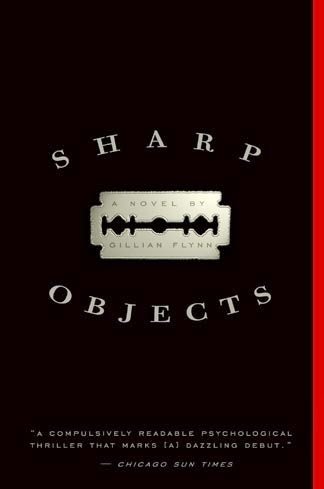
I recently plowed through SHARP OBJECTS, by Gillian Flynn. After Flynn's Gone Girl shot to the top of my list of favorite books, I realized I not only love inspirational romances. Apparently I also like dark, twisted dramas. Sharp Objects is definitely dark and twisted, but sooo good.
As always, I learned several important writing lessons from this book. Before I get to that, here's a little bit about Sharp Objects:
Fresh from her brief stay at a psych hospital, Camille Preaker's first assignment at her second-rate daily paper takes her reluctantly back to her hometown to cover the murders of two preteen girls. As she works to uncover the truth, Camille finds herself identifying with the young victims--a bit too strongly. Dogged by her own demons, Camille will have to confront what happened to her years before if she wants to survive this homecoming.
And now for my writing lessons learned. (Warning! If you haven't yet read "Sharp Objects," and don't want to know any plot points, STOP!)
When writing a murder mystery, add an unforgettable detail. Without giving too much away, let me just say that there was a strange detail that included teeth. I swear, I keep thinking about those darn teeth. The author did a great job of embedding a disturbing detail in my mind.Mystery solved? Not so fast! Just when I thought the mystery was solved, BAM! It so wasn't solved. The author messed with my head, including one last glorious surprise. This was a great reminder to me to not rest on a good ending. Consider a major twist in those final pages.Downer of a main character? Show the reader why. In the opening pages, I could tell that Camille was a cynical downer. I didn't love her and I didn't hate her. I felt sorry for her, and was intrigued by her story. Once I met her mother, and other residents of her small town, I understood why she was who she was. The author made me curious about the backstory, but threaded it in slowly.Paint the setting with "showing" details. The author never said Wind Gap, Missouri was a place worth running from. She showed us through the in-a-rut townspeople, the depressing bars, and the nasty gossip. I understood why Camille fled her hometown as soon as she could. (A quick Google search tells me Wind Gap, Missouri isn't a real place. True? Does anyone know for sure?)Find a unique way to show your character's inner turmoil. Again, without giving too much away, I'll just say that Flynn used words in a unique, disturbing way to show Camille's turbulent past.Consider an unhappy ending. However, genre really matters here. I've been frustrated with endings to Nicholas Sparks' novels before, because I want my romances to end happily. In a dark drama like this, and in Gone Girl, the unhappily ever after works.Footnote: Gillian Flynn is also a master at metaphors.
Have you read Sharp Objects? How about Gone Girl? What are your impressions of these lessons learned? Any you've tackled in your own fiction? Please share!
Wait! Before you go...here's an announcement from Janice Hardy:
Looking for a Fun Kidlit Writers' Conference? Give Springmingle a Try. Springmingle '15 Writers' and Illustrators' Conference will take place on March 13-15, 2015 in Decatur, GA. This year's conference faculty includes: Giuseppe Castellano, Art Director at Penguin Young Readers Group; Karen Grencik, Literary Agent/Co-Founder of Red Fox Literary, LLC.; Elise Howard, Editor, Algonquin Young Readers; Bill Mayer, Award-winning Illustrator; Meg Medina, Award-winning Author; and Neal Porter, Publisher, Neal Porter Books, imprint of Macmillan Children’s Book Group. Visit their website for a complete listing of workshops.
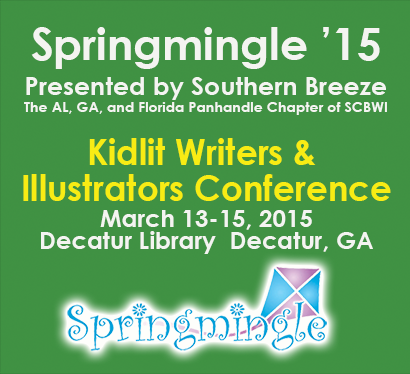
Published on February 11, 2015 04:00
February 4, 2015
Insecure About Queries? #IWSG
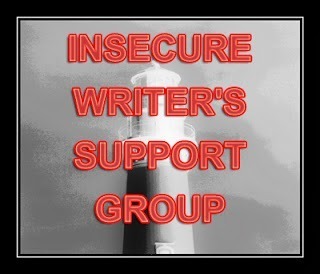
Welcome, Insecure Writers! If you haven't yet joined this wonderful group--created by Alex J. Cavanaugh--jump over here and fix that!
Are you feeling insecure about writing a query? Me too!
Two of my books were released last year, and when I go back and read the queries, I'm so proud that I wrote them. The query for The Boy Who Loved Fire helped me sign with an agent. It's perfect for that book.
As I entered the "new query" stage for another project, I was frozen. I couldn't snatch the words floating in my head and put them in a logical sequence that captured an entire story--even though I'd drafted a query pitch before I wrote the book. Was I losing my skills? Had I taken a step back?
No. It felt this way before I wrote the query for The Boy Who Loved Fire, and before I wrote the query for The Summer of Crossing Lines.
The trick for me is to do the following:
Research "how to write a query," to remind me what works and what doesn't.Dive in.Diving in can be the hardest. But once the crappy words are written, they can be deleted, replaced, and shaped. We can't do that with a blank page. So my crappy words are written, and I'm in the pruning stage. I'll get it right--with time and hard work.
If you're insecure about the query, like me, here are some links that may help: Writing a Query Letter, by Elana Johnson; articles about writing a query by Janice Hardy; and How to Write a Query Letter over at AgentQuery.com.
How about you, fellow writers? Do you struggle with writing queries? Have you nailed it? Any tips you can share with the rest of us?
Published on February 04, 2015 04:00
January 28, 2015
Reflections on a Year of Indie Publishing
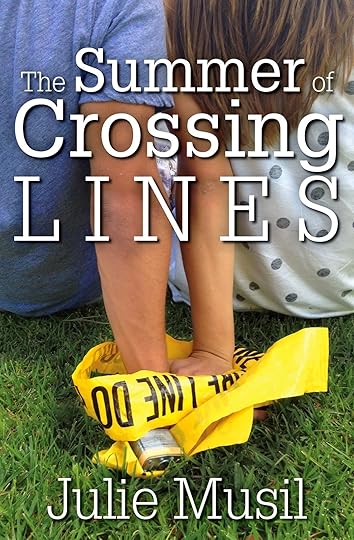

Hard to believe, but it's already been a year since I took the indie plunge. Since then, I've published two books: The Boy Who Loved Fire and The Summer of Crossing Lines.
I thought it would be fun to reflect on the past year--what I've learned, what I've loved, and what I'm thankful for. Here are some thoughts as I round out year one.
Indie publishing is fun. Yes, it's also hard. And yes, it keeps authors very busy. But it sure is fun. The creative control is intoxicating. Editing the manuscript until it's ready for readers is such a worthy challenge. And cover design? Such a thrilling, collaborative experience. Heck, I even loved formatting the manuscripts and uploading them to distributors. For me, the whole process is fun, fun, fun.Zero pressure (except the pressure we place on ourselves). No pressure to sell a certain number of copies before the book is yanked off the shelves. No pressure to become a media darling. Sure, I placed pressure on myself to create quality books with eye-catching covers, and I pressured myself to hit deadlines, but those were self imposed. I'm not a bestselling author...yet! (and that's ok). I've experienced so much joy from simply writing stories and preparing them for market. This may sound crazy, but I don't check sales numbers, rank, or lists. Maybe some day I will, but not right now. I'm just busy preparing the next book.Time management is a constant battle. I'm a slow writer. For me, my best work comes through time and reflection--not a meat grinder. Other indies release several books a year, but I can't focus on their timelines or I'd be tempted to release my books before they're ready. I do what I can when I can, in a way that makes me proud. You can't ask for much more than that.I'm grateful. For every single reader, for every single review, and for every kind word. I'm grateful for Amazon, and Apple, and every distributor who made indie publishing so darn easy. Each time someone downloads my book or orders a print copy, they're placing faith in me. I'm truly thankful for that. These books were labors of love, and it's satisfying to see them out in the world.The indie community rocks. I've been blown away by the amount of resources out there. Podcasts, blog posts and resources shared by Joanna Penn, Susan Kaye Quinn, Simon Whistler, and more. Everyone shares what they've learned, which helps other indies. It's awesome.It's been a fun, exciting year. I've conquered massive fears and learned a heck of a lot. Moving forward, I will continue to write books, improve my craft, and send stories into the world. Indie life suits me!
Have you taken the indie plunge? What was 2014 like for you as a writer? Did you achieve goals? Surpass them? Re-align your priorities? Please share!
Published on January 28, 2015 04:00
January 21, 2015
Writing lessons learned from COMPULSION
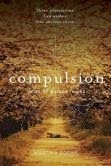
I read a lot over the Christmas break, so I'll share another post about writing lessons learned from great fiction! I had the pleasure of reading COMPULSION by Martina Boone, who just happens to be a friend and wonderful blogger. If you haven't stopped by Adventures in YA Publishing, you should. Martina's blog is packed with advice, giveaways, and workshops.
Before we get to the lessons, here's a bit about Compulsion:
All her life, Barrie Watson has been a virtual prisoner in the house where she lived with her shut-in mother. When her mother dies, Barrie promises to put some mileage on her stiletto heels. But she finds a new kind of prison in her aunt's South Carolina plantation instead--a prison guarded by an ancient spirit who long ago cursed one of the three founding families of Watson Island and gave the others magical gifts that became compulsions.
Stuck with ghosts of a generations-old feud and hunted by forces she cannot see, Barrie must find a way to break free of the family legacy. With the help of sun-kissed Eight Beaufort, who knows what Barrie wants before she knows herself, the last Watson heir starts to unravel her family's twisted secrets. What she finds is dangerous: a love she never expected, a river that turns to fire at midnight, a gorgeous cousin who isn't what she seems, and very real enemies who want both Eight and Barrie dead.
This book was beautifully written, with a setting authentic enough to be its own character. Here are my writing lessons learned from Compulsion (Alert! If you haven't yet read Compulsion, and don't want to know any plot points, stop! But please come back after you've read the book):
Show early signs of a special gift: if the story is paranormal, it's a great idea to show the reader the unexplained. If the story isn't paranormal, the author can still show qualities like the gift for gab, or a knack for not following directions. In Barrie's case, she's in a taxi early in the story when we learn she has a gift for finding lost things.Introduce the love interest early, even if it's only for a moment: a staple for fans of romances, but even for YA readers who swoon over the adorable guy. Barrie meets Eight Beaufort soon after she arrives at her aunt's plantation. He lives in the neighboring mansion, and also has gifts of his own.Leave a trail of unanswered questions: as questions are answered, new questions pop up, which kept me curious. For example, Barrie's mom was burned in a fire, and she allowed her family to believe she was dead. Why?Just when the reader has it all figured out, change things up: just when I thought I had all these characters figured out, Boone added a new surprise about the curse, the feud, or a twist on mythology. It kept me on my toes.Weave mythology in organically: I don't usually gravitate toward stories with mythology, but in this case, it was woven in the story in an interesting way after I'd already gotten to know the characters. The story first introduces a girl who's lost her mother, and then moves on to the boy, and the curse, and a family feud. Mythology wasn't dumped in like a textbook. It was woven in naturally through story events.Make each scene work overtime: with each scene, there were multiple plates spinning. It wasn't just the main character going somewhere or doing something. There were interactions with other characters--real or not--as well as inner dialog and forward movement. Compulsion provides excellent examples of scenes earning their keep and working overtime.Have you visited Martina's blog? Have you read Compulsion yet? Any thoughts you'd like to add? Please share!
Published on January 21, 2015 04:00
January 14, 2015
Writing lessons learned from LOVE UNEXPECTED
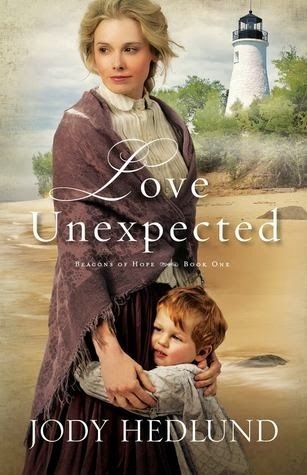
I recently finished another wonderful book by Jody Hedlund--Love Unexpected. In my opinion, there are so many great writing lessons to learn from Hedlund's fiction. I'll share some of them below. But first, about Love Unexpected (from Amazon.com):
All Emma Chambers ever wanted was a home, but when her steamboat sinks just outside Presque Isle, she's left destitute and with no place to stay.
An unlikely solution arises when the lighthouse keeper arrives in town. He's just lost his wife and is having a difficult time caring for his child. So a traveling preacher gets the idea that the keeper and Emma might be the answer to each other's dilemma. After a hasty marriage, she finds herself heading to the lighthouse with this handsome but quiet stranger. Nothing in her aimless life, though, has prepared her for parenting a rambunctious toddler, as well as managing a household.
Emma soon suspects Patrick may be hiding something from her, and then she hears a disturbing rumor about the circumstances surrounding his late wife's death. It seems as if her wish for a home and family of her own could end up leading her once more into turbulent waters.
Here are some writing lessons I learned from this inspirational romance (Alert! If you haven't yet read this story, and don't want to know any plot points, come back to this post once you've finished the book):
Open with action: we hear this all the time, right? But Hedlund does this so well. The opening pages include pirates, a shipwreck, and a rescue at sea. Bam! It also reveals the bond between Emma and her brother, as well as the greed and cruelty of pirates.Bring on the desperation: both Emma and Patrick are desperate. She's desperate for a home. He's desperate for a helping hand. Their desperation pushes them together and makes them consider a hasty wedding, even though they've just met.Shady past adds intrigue: Patrick admits he has a criminal past, but the reader isn't aware of what he's done. Emma once turned a blind eye to her late father's wrongdoings. Both characters have something to hide. It adds a layer of darkness and intrigue that make the characters more interesting.Play up the inner demons: Patrick carries a lot of baggage and is now trying to live a Godly life. Story circumstances add conflict and dredge up the past, which create a reformed man we can root for.Hurt the ones they love: betrayal is so much more powerful when it's between people who love and trust each other. Emma doesn't intend to betray Patrick, but she does. This hurts him deeply--much more than if the villain had betrayed him. This betrayal adds another layer of emotion to the story.Decisive moment that shows character: at one point in the story, Patrick must decide whether or not to help a bad person. He weighs this decision carefully in a "What would Jesus do?" moment. His decision sets up series of harmful events, and shows his true character.Have you seen these writing lessons in books you've read? Have you used them in your own fiction? Have you read Love Unexpected? Anything you'd like to add? Please share!
Published on January 14, 2015 04:00
January 7, 2015
Find Your Audience Your Way #IWSG

Happy New Year, Insecure Writers! I hope you all had a wonderful holiday season. If you want to join this amazing group, created by Alex J. Cavanaugh, click here.
First, a fun bit of news. My cover for The Boy Who Loved Fire (designed by J. Allen Fielder) made the Top 19 list over at WriteKidsBooks.org. Check out the link here.
Now, on with the regular post...
Our church had a special guest this Christmas--Colton Dixon. If you watch American Idol, you'll likely be familiar with him. He came in 7th in season eleven.
On Christmas Eve, my sons and I went to church and were blessed enough to watch this young man perform. And while I was wowed by his music and his message, I was also wowed by his journey.
You see, his American Idol dreams didn't come true. He didn't even hit the top three. But what impresses me about Colton Dixon is that he stayed true to himself and his art. His mohawk-skinny jeans-rocker style and meaningful messages have catapulted him to the top of the Christian music charts. He didn't shy away from his faith--he embraced it--and found his audience his way.
His story reminded me how important it is to:
Embrace opportunitiesWrite what's uniquely oursFollow our own pathsGiven the same writing prompt, ten thousand writers would write ten thousand different stories. That's really cool. So while I love the work of Jodi Picoult and Kristin Hannah, I can't write like them or torture myself by trying to mimic their paths. I've learned this important lesson--peace comes from writing what's in your heart and enjoying your own unique journey.
Have you heard of Colton Dixon? Do you struggle with writing what's uniquely yours? Do you try to mimic the paths of other writers? How has that affected your mood and style? Please share!
If you haven't heard him yet, here's Colton Dixon singing his latest release, "More of You."
Published on January 07, 2015 04:00
December 17, 2014
Small Publishers: 3 Steps to Finding the Perfect One For You
 (photo credit)
(photo credit)Last week WiDo Publishing's managing editor, Karen Gowen, busted some myths for us about small publishers. Check out the helpful interview here.
For many authors, small publishers are the perfect option. Perhaps an author doesn't want to work with a literary agent (not always necessary with a small pub), or pursue one of the Big 5. Maybe they don't want to go indie, or they want to be a hybrid author. If writers are looking for a publishing partner with a personal touch, small publishers can be a great way to pursue a traditional path.
But many authors haven't considered this option, or don't even know where to start. I haven't personally published with a small press, but my friends who've gone with small publishers have enjoyed their experiences. I've considered it and done a lot of research.
So how do you know which small publishers to pursue, and how do you know they'll be with you for the long haul? Hopefully this guide will help you.
1) Find out who they are.
If you write for children or teens, I highly recommend subscribing to Children's Writer Newsletter. It's $15 per year but worth every penny. Each issue has excellent articles about the writing craft. It lists publisher's names--the biggies and the small--along with editor names. There are SO many reputable publishers out there that many authors haven't heard of. Plus, they list publishers that might cater to niche markets. Niche markets might be a perfect place for your book.Visit Agent Query for their long list of small presses.Find the publisher's name of the books you're reading. It's possible it's a small publisher. Since you're reading this blog, it's likely you're a blogger. Many of our author friends, like Anne R. Allen and Alex J. Cavanaugh, have worked well with small presses. Start keeping a list of publishers you've heard about in the blogging community, especially those that match the genre you write in.Google it. Run a search such as small presses for YA books, etc. See what pops up. Add more names to your list.2) Research, research, research.Visit their web site. Are they still in business? If so, how long have they been in business? Does the site look professional? Does it seem as if your manuscript would fit well with their list? Are their covers eye-catching?Check them out on Preditors and Editors. Most presses are listed there, along with comments such as vanity press, recommended, not recommended, etc.Search for the publisher's name in the Absolute Write forums. What are other authors saying about them? If there's negative chatter, make sure it's legit and not just bitterness being splashed on the web.Contact the small publisher's authors. Most sites will list the books they've published. Google the author's name and send them a message via their contact page. Ask about their overall experience with the publisher. Was the publisher fair? Was the author allowed any creative input? Did the small press pay royalties when promised?3) Submit.Check each publisher's web site for their submission guidelines.Follow those guidelines exactly.Keep a log of your submissions. My submissions tracking sheets listed the date of submission, the publishing company, the editor's name, what I sent them (according to their guidelines), and a spot for results.Once you've found the perfect small press, researched the heck out of them, and submitted your work, the best advice is to...you guessed it, write the next book!
Friends, have you submitted to small presses? Published with one? Any advice you'd like to add? Please share!
Published on December 17, 2014 04:00
December 10, 2014
Small Publishers: Myths Busted Here

Have you ever considered submitting to a small publisher? Were you confused about their place in the industry, or what they bring to the table? Today Karen Gowen, Managing Editor at WiDo Publishing, is here to shed some light on small publishers and bust some myths for us. Here's a Q and A session with Managing Editor Karen Gowen:
Julie Musil: What are some common misconceptions about small publishers? Can you do a little “myth busting" for us?
Karen Gowen:“A small press can’t do anything for me I can’t do as well or better for myself.” A common misconception, that doesn’t take into consideration the cost of time and money it requires to do it all yourself rather than sharing the load with professionals who are willing to invest in your work.“Small publishers can’t get my book in a bookstore.” If a small publisher has the right distribution channels then your book can certainly be in a bookstore. However, remember that ultimately the bookstore chooses what it puts on its shelves and with millions of books to choose from, they need to have a reason to stock yours. This is why we encourage our authors to promote themselves and their books the first 90 days of their launch, in partnership with their local bookstores.“They might go out of business.” Any company, large or small, can fail for any number of reasons. It’s important to do your research and feel confident about the publisher you choose. And be sure there’s a clause in your contract where the rights will revert to you should they go out of business.“If my book doesn’t do well it will hurt my chances of getting an agent and a big contract later.” This really doesn’t apply in today’s publishing market. Many authors are going hybrid, trying all kinds of ways to publish and market their work, and a savvy publisher will understand this. One of our top-selling books, Waxing Moon by H.S. Kim, was previously self-published with poor rankings and sales. It frustrated the author who decided to submit it to WiDo. Our submissions editor saw how with a better title and cover and professional editing, her book could get another chance, and that’s exactly what happened.“All publishers are out to cheat the author and make money on their hard work.” Any publisher who cheats their authors will not stay in business long. It’s a partnership, where if the book sells, both parties benefit. If a book does not do well, the publisher has lost money on their investment while the author has lost their investment of time and hope. It is disappointing but there are no guarantees. Ultimately it’s the marketplace that determines how a book will sell. Some think it’s the publisher’s fault if the book doesn’t do well. This is a short-sighted view which won’t help one’s career. Better to just move on and write another book. A legitimate publisher has strong motivation to see a book make money, and both author and publisher will share in the success.Julie Musil: What are some of the benefits of working with a small press vs. pursuing a Big 5 publisher or going indie?
Karen Gowen: A major benefit over going indie is you’ve got someone else financing the editing, typesetting, cover design, etc. rather than having to pay for these costs yourself. Plus you’re dealing with professionals who have done it all before. This takes a lot of pressure off the author, allowing you to focus on your own marketing efforts as well as on the next book you want to write. And a small press can have the same distribution channels as a large one—distribution that is not available to the self-published. WiDo distributes worldwide through Ingram and Baker & Taylor, the two largest distributors to bookstores, both brick and mortar and online.
The benefits over using a Big 5 publisher are personal contact, quick turnaround time, and your book getting a longer chance to find its niche rather than mid-listed after 30 days if it doesn’t sell right out the door. Books submitted to WiDo are often published within a year to 18 months of signing the contract. Our editors don’t have a huge backlog of work and can give personal attention to each author they work with. Each book and author is treated equal to every other one. Some books may do well right after launching, others might take longer, and unfortunately, there are books that never really find an audience. But we never give up on any of them because we know how good they are.
Julie Musil: What should authors look for when researching small presses and ultimately submitting?
Karen Gowen: The first thing to look for is how the money flows. If the company charges for any services, or deducts production costs from author royalties, then the money flows toward the publisher. If the company takes care of all book production and pays a fair royalty on sales, then it flows toward the author. This is what you are looking for: the money is to flow to you, not to the publisher.
Then there’s the contract. If you don’t feel good about it, don’t sign it. Have a lawyer look it over if you’re not sure. Check what kind of books the publisher has released and how well do they fare in the marketplace. Also, how happy are the authors with the publisher? There will always be books that sell better than others and disgruntled writers upset that theirs haven’t done as well as they expected, but the overall picture should be a positive relationship between author and publisher, with both working together to give the book every chance at success.Julie Musil: What is WiDo on the lookout for? What would you like to see in your inbox?
Karen Gowen: If you’ve checked our submissions guidelines and submitted accordingly, then after that we want to see something fresh and original, either in concept or writing style and preferably both. Some recent examples of work we’ve published which fits into this category are the following:The Opposite of Everything by David Kalish—dark humor about a man diagnosed with thyroid cancer and fumbling in his relationships. Drinking from a Bitter Cup by Angela Jackson-Brown—a young girl with everything going against her finds the inner strength to rise above her challenges.The Convict, the Rookie Card and the Redemption of Gertie Thump by Becky Lyn Rickman—a hilarious look at a small town busybody who gets caught up in other people’s lives despite her resistance to helping anyone but herself.The Magic Wakes by Charity Bradford—a well-woven blend of sci fi, magic and romance in the New Adult genre.Red-tailed Rescue by John Irby—a heart-warming prairie tale about the friendship between a troubled girl and a red-tailed hawk, told from both points of view.
These are just a few of the amazing books we’ve published recently. As you can see, they have one thing in common—fresh and original storylines—with the added bonus of being extremely well-written and having strong, identifiable characters.Karen, thanks so much for shedding light on WiDo and other small publishers!
Friends, as you can see, there are many great reasons to consider submitting to small publishers. One of Karen's best pieces of advice, in my opinion, is to do a lot of research. In a future post I'll outline resources for researching small publishers.Have you published with a small publisher? Submitted to some? Any advice you'd like to add?
Published on December 10, 2014 04:00
December 3, 2014
The Perfect Publishing Path #IWSG

Welcome, Insecure Writers! If you're ready to join this wonderful group, click here to sign up.
My oldest son recently began applying for early decisions at his top university picks. Amazing that we're at this point in our lives already, but here we are. *sigh*
In high school there's been a lot of chatter about which high schools are superior, which are inferior, blah, blah, blah. Same with college choices. Public, private, JC, small, large, etc. It's a lot of noise for teens to muddle through. Our son has a solid idea of what he wants to do, but we all know how solid those solid ideas can be, right? *ahem*
Anyway, my hubby gave our son great advice. He reminded him that he'll hear a lot about which schools are the best, what he should do, etc. But there's only one perfect school--the school that's right for him.
Hubby's sage advice reminded me of the publishing business. How there's been debate about which path is the perfect publishing path. But the same holds true--the only perfect publishing path is the one that's right for you.
Big publisher, small publisher, indie publishing, hybrid publishing. We're all taking our own twisted paths in this crazy business, and my journey will not--and should not--look like yours.
I don't know about you, but I'm sooooo grateful to be a writer in this day and age. A time when anyone who has the courage to put words to paper can see their work in the marketplace. We are not held back by anyone except ourselves, and wow, what a liberating feeling that is.
Whatever path you take, I hope you'll enjoy the ride. Because you'll be on your own perfect path--the one that's right for you.
Friends, do you get flustered when trying to decide which path to take? Have you set out on one path and changed courses? Please share!
Published on December 03, 2014 02:00



